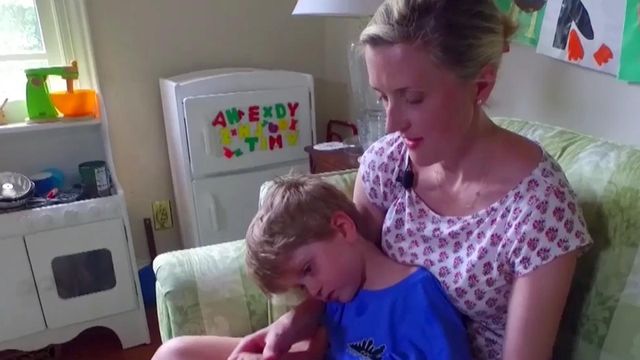Raleigh mom worries for son if Congress cuts Medicaid
While details of a plan to repeal and replace the Affordable Care Act are hashed out in Washington, D.C., families of children with special needs are voicing concerns about what the Republican proposal could mean for their future.
Posted — UpdatedThousands of North Carolina children with special needs and an estimated 5 million nationwide depend on Medicaid, which Republicans plan to slash in their overhaul of the U.S. health care system.
"I think I haven’t slept since the news about the health care plan came out," said Sarah Baker, whose 6-year-old son, James, has a genetic disorder that causes him to have numerous seizures each day.
Baker and her husband changed jobs after James' diagnosis to get better health insurance and more flexible schedules. Still, the family depends on Medicaid for much of their son's needs.
"I never thought I’d need government to be involved in my life in any way," she said, adding that she doesn't know how the family will survive without Medicaid.
"What it means to us is everything. It has been life-changing," she said. "It means everything to James that we can have someone who we trust him with who has medical training and can take care of him."
Medicaid picks up about $65,000 in health costs for James beyond the Bakers' insurance coverage, paying for a nurse for 20 hours a week, physical therapy, feeding tubes and a specialized bed that isn't covered by insurance.
"It makes our life better every day. I wish people understood better this is what enables us to work and contribute to society," she said.
Baker said she worries about the future for James and her family – she and her husband have three other children – if Congress approves the proposed Medicaid cuts.
"There’s a lot of unknown for us," she said. "It is so scary to think about.
"It feels like the group of people most affected by this are the people, the children, who can’t speak for themselves," she continued. "I would say this is not a political issue. It's a moral issue about how do we treat and protect our vulnerable people, and I can't think of anyone more vulnerable than a disabled child."
• Credits
Copyright 2024 by Capitol Broadcasting Company. All rights reserved. This material may not be published, broadcast, rewritten or redistributed.






